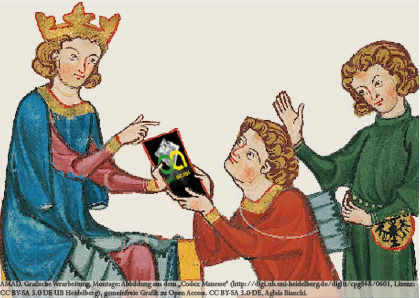AMAD
"Archivum Medii Aevi Digitale - Specialized open access repository for research in the middle ages"To submission

| Date: | 2012 |
| Title: | Natural theology and natural philosophy in the late Renaissance ; Natural theology in the confessional age |
| Contributor: | Serjeantson, Richard |
| Author: | Woolford, Thomas |
| Description: | Scholars have become increasingly aware of the need to understand the religious context of early modern natural philosophy. Despite some great strides in relating certain areas of Christian doctrine to the study of the natural world, the category ‘natural theology’ has often been subject to anachronism and misunderstanding. The term itself is difficult to define; it is most fruitful to think of natural theology as the answer to the question, ‘what can be known about God and religion from the contemplation of the natural world?’ There have been several erroneous assumptions about natural theology – in particular that it only consisted of rational proofs for the existence of God, that it was ecumenical in outlook, and that it was defined as strictly separate from Scriptural revelation. These assumptions are shown to be uncharacteristic of the late-sixteenth and early-seventeenth century. The study of natural theology needs to be better integrated into three contexts – the doctrinal, confessional, and chronological. Doctrinally, natural theology does not stand alone but needs to be understood within the context of the theology of revelation, justification, and the effects of the Fall. These doctrines make such a material difference that scholars always ought to delineate clearly between the threefold state of man (original innocence, state of sin, state of grace) when approaching the topic of ‘natural’ knowledge of God. Confessionally, scholars need to recognise that the doctrine of natural theology received different treatments on either side of the sectarian divide. In Catholicism, for instance, there were considerable spiritual benefits of natural theology for the non-Christian, while in Protestantism its benefits were restricted to those saved Christians who possessed Scriptural insight. Chronologically, natural theology does not remain uniform throughout the history of Christian theology but, being subject to changes occasioned by philosophical and theological faddism and development, needs to be considered within a particular locus. Research here focuses on late sixteenth-century orthodoxy as defined in confessional and catechismal literature (which has been generally understudied), and demonstrates its application in a number of case-studies. This thesis begins the work of putting natural theology into these three contexts. An improved understanding of natural theology, with more rigorous and accurate terminology and better nuanced appreciation of confessional differences, makes for a better framework in which to consider the theological context of early modern natural philosophy. ; This work was supported by the Arts and Humanities Research Council (AHRC). |
| URI: | https://www.amad.org/jspui/handle/123456789/109708 |
| Other Identifier: | https://www.repository.cam.ac.uk/handle/1810/242394 https://doi.org/10.17863/CAM.16015 http://www.dspace.cam.ac.uk/handle/1810/242394 |
| AMAD ID: | 693726 |
| Appears in Collections: | BASE (Bielefeld Academic Search Engine) General history of Europe |

